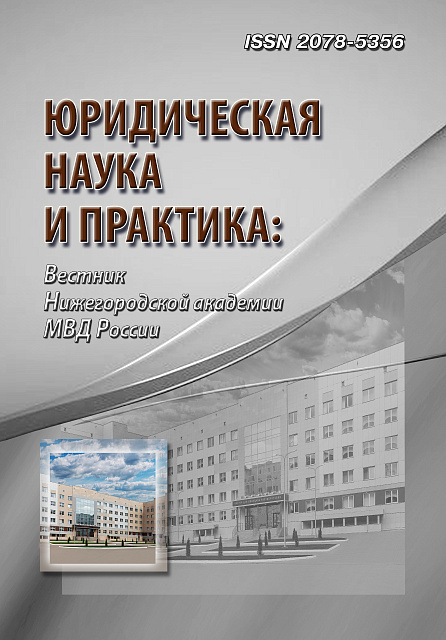Russian Federation
Analyzing the complex understanding of forensic culture as a phenomenon of the criminal law sphere, an attempt is made to highlight its methodological prerequisites and trace the didactic possibilities of forensic education. Law enforcement is understood as a process of restoring justice in public relations by following the trail of events of criminal reality, revealing their essence and proving the relationship between the traces found and the events that caused damage to people or nature. As a result, there is a personification of the responsibility of those persons who meaningfully or lightly irresponsibly reacted to the procedure for exercising their rights in public relations and thereby came into conflict with the law. The exceptional role of the stage of application of didactic means for the formation of skills and abilities to investigate individual manifestations of criminal reality is highlighted. Based on a comprehensive understanding of the trace space, due to the structuring of criminal reality and the ability to work with primary information, approaches to the versioned analysis of the event plan using a specialized map of forensic information analysis are distinguished. The developed didactic tools for special analytical training are divided into levels depending on their belonging to the elements of the methodology for investigating crimes. After characterizing the features of the map of forensic analysis of information, the features of the investigation planning procedure as a process of essential understanding of the stages of evidence formation are revealed, as well as tools for checking the completeness and validity of the evidence system are identified and characterized. In conclusion, the technology developed by the author for substantiating and making tactical decisions is characterized.
forensic culture, law enforcement and investigation, didactic tools for teaching the process of investigating crimes
1. Zhuravlev S. Yu. Typology of the mechanism of criminal activity of an economic orientation and the basic methodology for investigating crimes: monograph / scientific ed. by A. F. Lubin. Nizhny Novgorod: Nizhny Novgorod Academy of the Ministry of Internal Affairs of Russia, 2013. Pp. 200-221. (In Russ.)
2. Zhuravlev S. Yu. Conceptual foundations of the universal tactical and methodological algorithm. Forensic tactics: current state and development prospects: Sat. mater. 56 forensic readings: in 2 parts. Moscow: Academy of Management of the Ministry of Internal Affairs of Russia. 2015. Part 1. Pp. 234-241. (In Russ.)
3. Krepysheva S. K. Formation of a prognostic methodology for investigating crimes related to the legalization (laundering) of criminal proceeds. Author’s abstract... candidate of legal sciences. Nizhny Novgorod, 2001. 23 p. (In Russ.)












